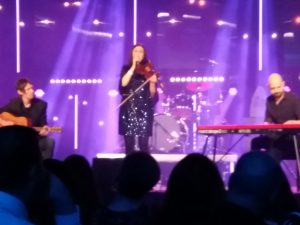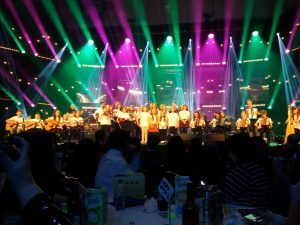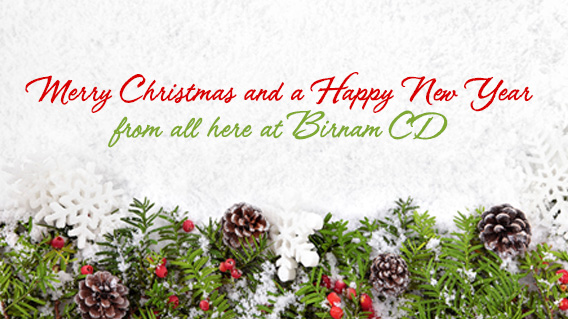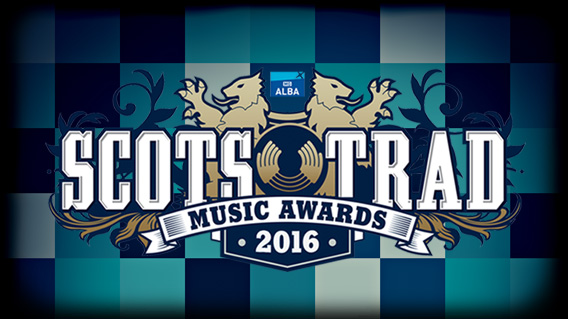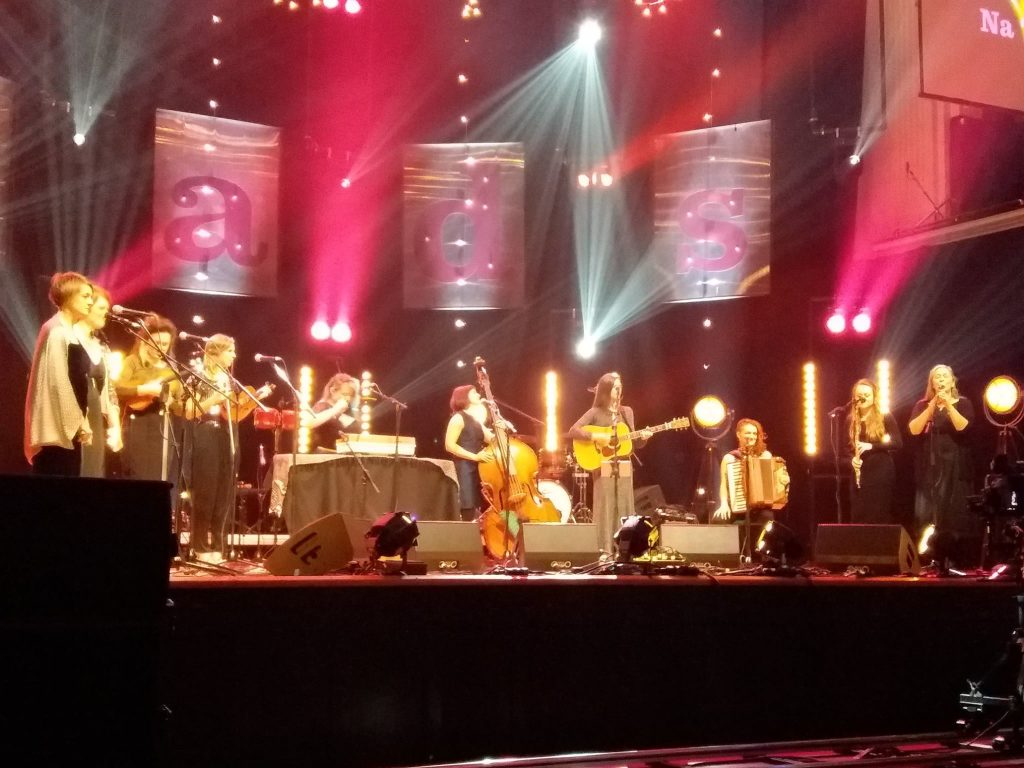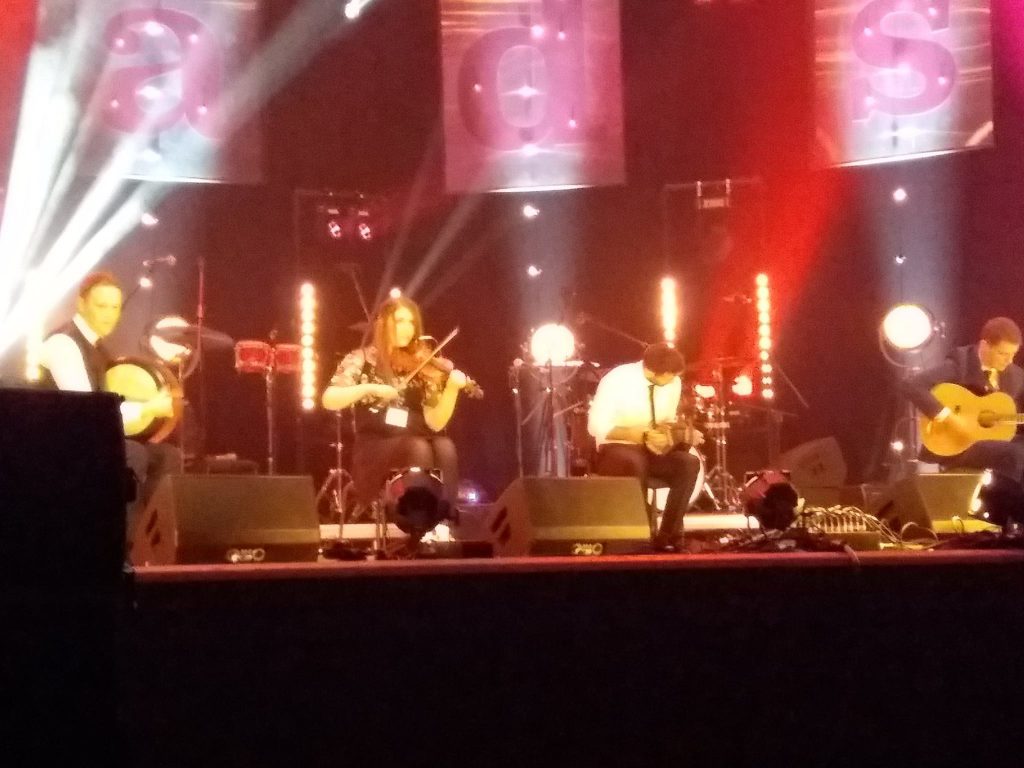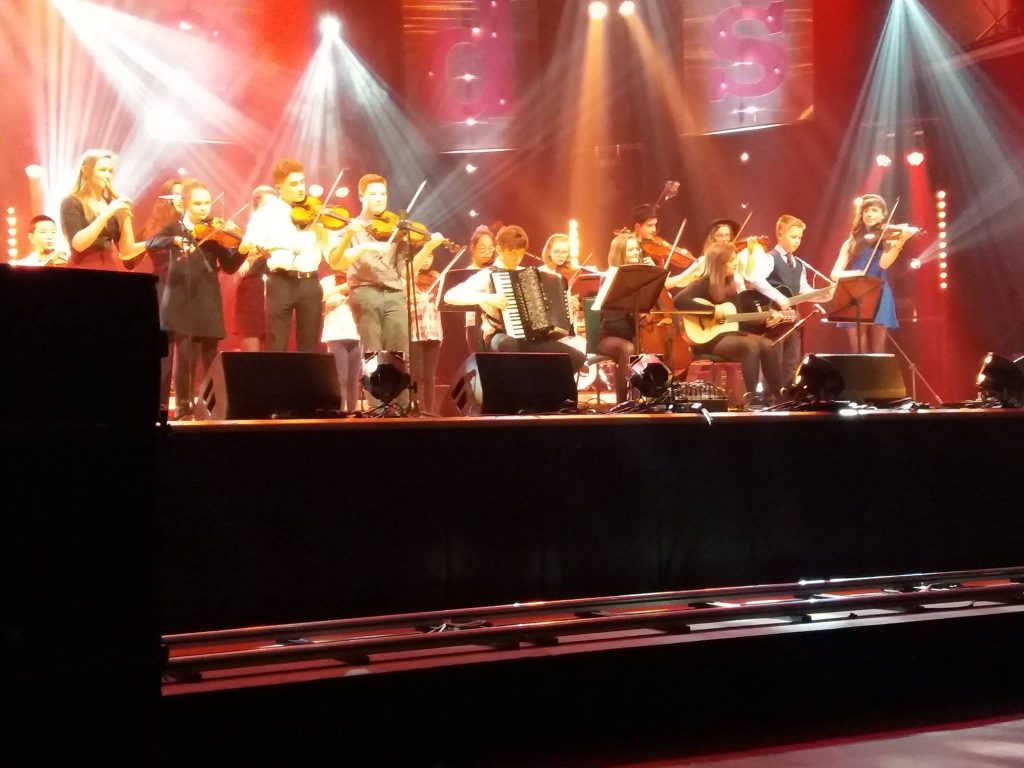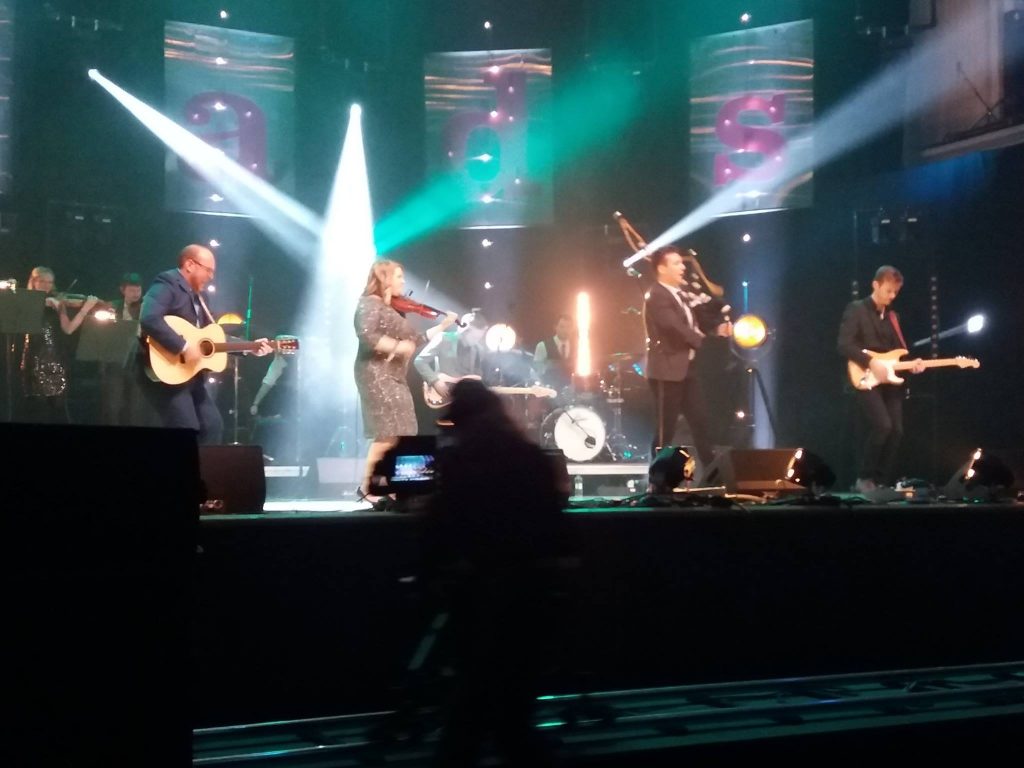Public voting is now open for the 21st MG ALBA Scots Trad Music Awards! This year’s awards sees 110 artists and organisations nominated across 22 categories, a strong reminder of the vibrance and variety at play across Scotland’s folk and traditional music scene.
Voting is open now and closes on Sunday 19th November. To vote, please head to:
https://projects.handsupfortrad.scot/scotstradmusicawards/voting/
The nominees are:
Album of the Year, sponsored by Birnam CD
– Dialogues by Su-a Lee
– Awakening by Ìmar
– Haar by Lauren MacColl
– DIAD by Tim Edey & Ross Ainslie
– Tempus by Skerryvore
– Decemberwell Decade by Mike Vass
– Fàs by Breabach
– Dusk Moon by Rura
– I See A World by Peatbog Faeries
– Black Cuillin by Duncan Chisholm
Citty Finlayson Scots Singer of the Year, sponsored by Traditional Music and Song Association of Scotland
– Iona Fyfe
– Arthur Nicolson
– Claire Hastings
– Chloe Matharu
Club of the Year
– Edinburgh Folk Club
– Glassel Gigs, Aberdeenshire
– Letham Nights
– The Gaitherin South Sessions, Glasgow
Community Project of the Year, sponsored by Traditional Arts and Culture Scotland
– Fèis Rois Ceilidh Trail
– The TAM Sessions – Claire Gullan and Kirstie McLanaghan
– A Tune For The Foodbank, Inverness
– School of Dàimh at the Arisaig Hotel
– Angus Mackenzie / Eilean a’ Cheòl
– Mull Music Makers
– Lismore Dance Band
Composer of the Year, sponsored by PRS for Music
– Kenneth I MacKenzie
– Rebecca Hill and Charlie Stewart
– Graham Mackenzie
– Catriona Price
– Heidi Talbot
Event of the Year, sponsored by VisitScotland
– Orkney Folk Festival
– Hoolie in the Hydro
– Eilean Dorcha Festival (EDF)
– Tartan Day, New York
– Glasgow Fèis
– The Reeling, Glasgow
Gaelic Singer of the Year, sponsored by Highland Society of London
– Donald Francis MacNeil
– Muriel Urquhart
– Gillebrìde MacMillan
– Eilidh Cormack
– Joy Dunlop
– Lana Phaeton
Live Act of the Year, sponsored by Gordon Duncan Memorial Trust
– Elephant Sessions
– Trail West
– Talisk
– Niteworks
– An Dannsa Dub
– Valtos
– Ryan Young
Music Tutor of the Year, sponsored by Creative Scotland Youth Music Initiative
– Amy Lord
– Domhnall Bàn MacDonald
– Louise Hunter
– Rachel Hair
– Jenna Reid
Musician of the Year, sponsored by University of the Highlands and Islands
– Esther Swift
– James Lindsay
– Julie Fowlis
– Graham Rorie
– Euan McLaughlin
– Rory Matheson
Original Work of the Year, sponsored Musicians’ Union
– The Hearth by Tom Oakes
– Quarterdays by Gavin Marwick
– Rose Window by Grace Stewart-Skinner (Commission for Spirit:360)
– The Swim by Jeneric (Jenn Austin and Eric Linklater)
– The Clearances Again by Donald Francis MacNeil and Skipinnish
Scottish Dance Band of the Year, sponsored by National Association of Accordion and Fiddle Clubs
– Iain MacPhail
– Cullivoe Band
– Crynoch Ceilidh Band
– Sandy Nixon
Scottish Folk Band of the Year, sponsored by Threads of Sound
– Blazin’ Fiddles
– Assynt
– Rachel Walker and Aaron Jones
– Gnoss
– Dallahan
– Beinn Lee
– Trip
Scottish Pipe Band of the Year, sponsored by National Piping Centre
– The Peoples Ford Boghall and Bathgate Caledonia Pipe Band
– Renfrewshire Schools Pipe Band
– Glasgow Skye Association Pipe Band
Trad Music in the Media, sponsored by Glasgow Caledonian University
– Craig Irving’s Guitar Instrumentals
– Gary West’s Enjoy Your Piping Podcast
– Deirdre Graham’s Gaelic Song Stories Podcast
– Fiona McNeill’s Celtic and Folk Fusions
– Travelling Folk, BBC Radio Scotland
Up and Coming Artist of the Year, sponsored by Royal Conservatoire of Scotland
– The Shands
– Donald and Peigi Barker
– Cala
– Lucie Hendry
– Elie McLaren and Ciar Milne
– The Madeleine Stewart Trio
Venue of the Year
– The Tolbooth, Stirling
– The Caird Hall, Dundee
– Lyth Arts Centre
– Breasclete Hall, Lewis
A raft of industry awards will also recognise individuals and organisations which support the creative pipeline of the sector. Those finalists are:
Graphics Designer
– Somhairle MacDonald
– VanGill Media
– Loom Graphics
– Elly Lucas
Traditional Music Enabler
– Lisa Whytock
– Craig Corse, CCM Live
– Dave Francis, Traditional Music Forum
– Mhari McLeman, Shetland Folk Festival
Photographer
– Marc Marnie
– Euan Robertson Photography
– Paul Jennings
– Eion Carey
Venue Technician
– Moray Munro, Queen’s Hall, Edinburgh
– Stirling Tolbooth Technical Team
– Gary at the Ceilidh Place
– Mike Adkins, An Lanntair
Sue Wilson New Writer Award, sponsored by Songlines Magazine
– Alana MacInnes – Uist Beò
– Angus MacPhail – Oban Times
– Alan Murray
A number of special prizes will also be awarded on the night, selected by a panel of esteemed industry judges, for services to traditional music and culture. John Urquhart will receive the Services to Gaelic Award, sponsored by Bòrd na Gàidhlig; Donald Smith will be presented with The Hamish Henderson Services to Traditional Music Award, while Frieda Morrison will receive The Janet Paisley Services to Scots Language Award, sponsored by Creative Scotland.




